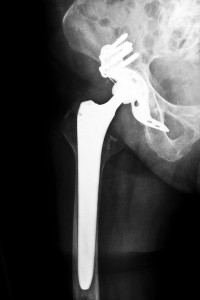
A California state court recently awarded more than $8 million in damages in a case stemming from a faulty hip replacement device. More lawsuits are expected, and some of these will be conducted under the jurisdiction of the U.S. federal court system. At the center of the legal action is the DePuy ASR XL Acetabular system, which is manufactured by the Johnson & Johnson subsidiary of DePuy Orthopedics. Residents of Alabama who have received the implant and are experiencing health problems as a result should consider consulting with a personal injury attorney for the purpose of seeking monetary compensation.
The ASR was viewed as the very latest in hip implant devices when it was approved for use by the U.S. Food and Drug Administration (FDA) in 2005. Its all-metal construction initially offered recipients the promise of reduced wear and an increased service life, but its design may have in fact led to its downfall. Since 2008, the FDA has received more than 300 complaints about the device, and in many cases the recipients needed corrective surgery. The problems are reportedly associated with the production of metal debris that occurs during process of normal wear, with this foreign material then affecting the human tissue that surrounds the implant. Some of the patients developed aseptic lymphocyte-dominated vasculitis-associated lesions, while others reported pseudotumors, which resemble actual tumors and may also be related to the presence of metal particulates.
It was first believed that due to its high failure rate, as many as one in eight recipients would require surgery to replace the implant. Later research indicated that as many as one in five of the recipients would need corrective surgery no more than four years after the original implantation, and approximately one in two of them would need surgery within six years. Other recipients may have suffered from symptoms related to the device, including pain, even though they may not have required surgery.
Two years of complaints prompted DePuy to issue a recall of its product in Australia. A recall was issued in the U.S. in March 2010, and that same month the manufacturer released a letter to the medical community containing damaging information about its product. Specifically, the letter described a higher rate of failure in the DePuy device than in traditional implants. The approval of the device by the FDA was done without clinical trials, and according to one press report, the ASR was marketed without adequate research and testing. Another study published in England suggested that all-metal devices could be more susceptible to failure than traditional implants, and in any event are no more effective in the way they help patients.
Even before the first recall was issued, the manufacturer announced that it would discontinue producing the ASR. However, more than 90,000 of the devices had by that time been implanted, with about a third of implantations taking place in the U.S. One report indicated that as many as 10,000 of those who have received the ASR could have a legal case against the manufactuer. Since the ASR is considered a defective product, these cases are being dealt under laws governing product liability.
Anyone living in Alabama who has received the ASR and is suffering from adverse health effects that are related to the implant is entitled to compensatory damages that can help cover the costs of additional surgery. Damages can also be sought to compensate for the physical pain and the mental anguish that often comes with a hip failure. One of Attorney Group for Alabamas many affiliated lawyers can be the best advocate for the victims of such defective products as the DePuy ASR implant. Contact us today to start on the path towards recovery.





